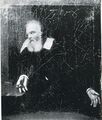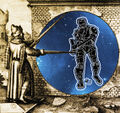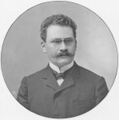Template:Selected anniversaries/June 22: Difference between revisions
No edit summary |
No edit summary |
||
| Line 53: | Line 53: | ||
||1953: Mauro Francaviglia born ... mathematician and academic. Pic search: https://www.google.com/search?q=mauro+francaviglia | ||1953: Mauro Francaviglia born ... mathematician and academic. Pic search: https://www.google.com/search?q=mauro+francaviglia | ||
||1953: Hollow Nickle case: a newspaper boy (fourteen-year-old Jimmy Bozart), collecting for the Brooklyn Eagle, at an apartment building at 3403 Foster Avenue in the New York City borough of Brooklyn, was paid with a nickel (U.S. five-cent piece) that felt too light to him. When he dropped it on the ground, it popped open, revealing that it contained microfilm. The microfilm contained a series of numbers. He told the daughter of a New York City Police Department officer, and that officer told a detective who in two days told an FBI agent about the strange nickel. Pic. | |||
||1954: Karl Taylor Compton dies ... physicist and president of the Massachusetts Institute of Technology (MIT) from 1930 to 1948. Pic. | ||1954: Karl Taylor Compton dies ... physicist and president of the Massachusetts Institute of Technology (MIT) from 1930 to 1948. Pic. | ||
Revision as of 09:28, 5 January 2020
1633: The Holy Office in Rome forces Galileo Galilei to recant his view that the Sun, not the Earth, is the center of the Universe in the form he presented it in, after heated controversy.
1633: Rogue mathematician and alleged supervillain taunts Galileo Galilei for recanting, daring Galileo to "tell it like it is, and let them burn you for it."
1863: Mark Twain reports that adventurer and alleged "Pirate of the Prairies" Wallace War-Heels "is preparing to rescue Galileo, or so he says. Impossible, I know, irrational, madness itself; yet I have seen him appear from thin air on a flying horse, and I have heard his strange discourse at some length, and though he is more a man than an angel, I believe he must partake of both."
1864: Mathematician and academic Hermann Minkowski born. He will show that Albert Einstein's special theory of relativity can be understood geometrically as a theory of four-dimensional space–time, since known as the "Minkowski spacetime".
1865: Adventurer and alleged "Pirate of the Prairie" Wallace War-Heels tells reporters that he has sworn to rescue Galileo Galilei, who has been false accused of committing crimes against mathematical constants.
1910: Engineer, inventor, and pioneering computer scientist Konrad Zuse born. He will invent the Z3, the world's first working programmable, fully automatic computer.
1943: Field Report Number One (Peenemunde edition) reveals Nazi efforts to rewrite history by false accusing Galileo Galilei of committing crimes against mathematical constants.
1977: Mathematician Gabriel Sudan dies. He discovered the Sudan function, an important example in the theory of computation, similar to the Ackermann function.







